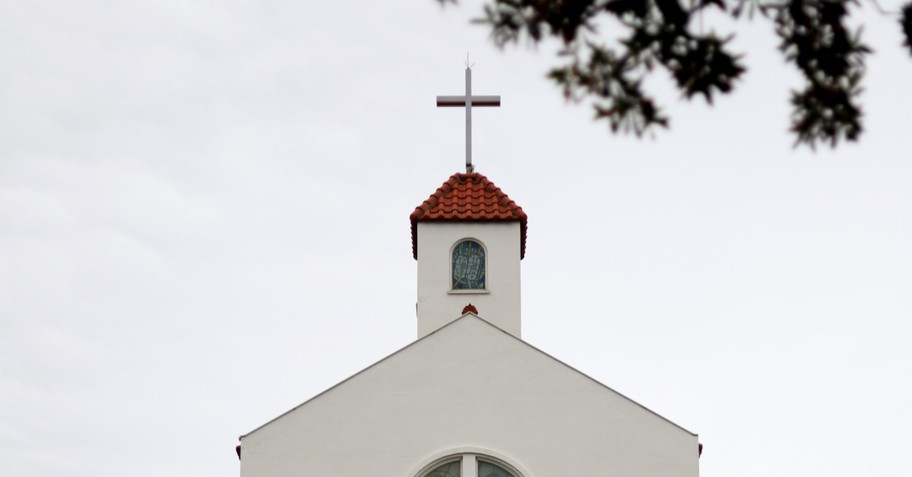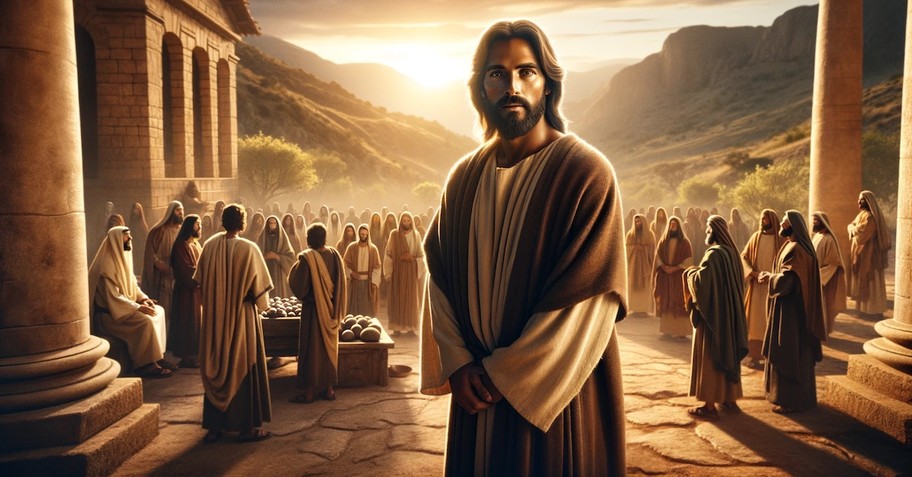What Is Tithing and Do I Have to Do It?

“Do I have to tithe?”
The short answer is—No, you don’t have to do it. God isn’t a tax collector, nor does He demand your obedience. God loves you so much He gives you the choice. But why wouldn’t you want to give back to Him? If you’ve placed your eternity in His hands, why wouldn’t you be eager to bring tithes and offerings to say thank you to the God of all creation?
But does what the Word say about tithing? Is tithing just Old Testament stuff?

What Is the Tithe?
The word "tithe" comes from an Old English root meaning "one tenth." It is the common English translation for the Old Testament Hebrew asar word group. The tithe was an offering of one's agricultural income to the Lord as an expression of thanks and dedication. In the Old Testament agricultural economy, tithes were paid not in cash, gold or goods but in crops or livestock, for only the agricultural fruit of the promised land was to be tithed—not other forms of income. Although today we commonly think of the tithe as "10 percent" as a result, apparently there are three tithes in the Old Testament, two every year and a third every third year, or an average of 23.3 percent of one's annual produce from the land. There was also provision for freewill offerings and personal giving above and beyond the tithe, so that the tithe never stood alone.
Photo credit: ©Nagesh Badu/Unsplash

Tithing acknowledges acceptance of God's authority.
Leviticus, Numbers, and Deuteronomy sets out the tithes and offerings requirement to the early Israelites in order for them to receive the blessings of God Most High.
Our Sovereign God is a God of order. He created the Levitical tithing system as a means of taking care of the priests, the Levites, the stranger, the fatherless, and the widows who lived within their gates. But throughout the Word there is a promise attached to giving required tithes and offerings (Numbers 14:28-29 NKJ).
“… that the Lord your God may bless you in all the work of your hand which you do” (Deuteronomy 14:29b NKJ).
Why would anyone gag over gnats and gulp camels when it comes to giving a portion back to El Elyon who gives us everything?
“Do not lay up for yourselves treasures upon earth, where moth and rust destroy, and where thieves break in and steal. But lay up for yourselves treasures in heaven, where neither moth or rust destroys, and where thieves do not break in or steal; for where your treasure is, there will your heart be also” (Matthew 6:19-21 NAS).
Photo courtesy: ©Vladimir Solomianyi/Unsplash

Ancient Jerusalem's king-priest received tithes.
Genesis 14:18-20 introduces us to Melchizedek, king of Salem (Ancient Jerusalem), who Scripture identifies as a priest of God Most High—El Elyon (Sovereign Lord). Abram is on his way home from a successful battle when King-Priest, Melchizedek, brought out bread and wine and blessed Abram:
“Blessed be Abram of God Most High, Possessor of heaven and earth; and blessed be God Most High, who has delivered your enemies into your hand. And Abram gave him a tenth of all” (Genesis 14:20 NAS).
The MacArthur Study Bible notes this is the first mention in Scripture of giving 10 percent. This 10 percent offering was voluntary, unlike the required tenth to come in the Mosaic Law.
Photo courtesy: ©Rob Bye/Unsplash

Israel robbed God; what about you?
The biblical account tells of disobedient kings and hard-hearted Israelites. Finally, God sent His chosen people into captivity because of their sin and rebellion. Israel was dispersed by Assyria and Judah was sent to Babylon for 70 years.
At the appointed time, just as God said, King Cyrus signed the decree and sent his cupbearer Nehemiah, to lead Judah’s people back to Jerusalem. But the last Old Testament prophet, Malachi, issued a stern warning from God to those returning refugees.
“For I am the Lord, I do not change; therefore, you are not consumed, O sons of Jacob. Yet from the days of your fathers you have gone away from My ordinances and have not kept them. Return to Me, and I will return to you,” says the Lord of hosts. “But you said, in what way shall we return? Will a man rob God? Yet you have robbed Me! But you say, In what way have we robbed You? In tithes and offerings. You are cursed with a curse for you have robbed Me, even this whole nation” (Malachi 3:6-9 NKJ).
The estimate is 20 percent of every congregation in America bears the cost for 100 percent of the church’s missions and budget needs. I ask you, are Christians in America guilty of robbing God just like ancient Israel?

Does the New Testament teach tithing?
“The Lord had sworn and will not relent, You are a priest forever according to the order of Melchizedek” (Psalm 110:4 NKJ).
The writer of Hebrews quotes this passage from the psalmist in Hebrews 7:17-21. And further states:
“For such a High Priest was fitting for us, who is holy, harmless, undefiled… who does not need daily as those high priests, to offer up sacrifices, first for His own sins and then for the people’s, for this He did once for all when He offered up Himself… but the word of the oath, which came after the law, appoints the Son who has been perfected forever.”
Jesus Christ is the perfected Son—our High Priest. He saved us from the penalty of sin. Acts 4 tells us about the giving habits of the early New Testament church. They sold all they had and laid it at the feet of the apostles to distribute as everyone had need.
God doesn’t ask you to sell everything. But Jesus left us with one command, “Go therefore and make disciples of all the nations, baptizing them in the name of the Father and the Son and the Holy Spirit, teaching them to observe all that I commanded you…” (Matthew 28:19-20 NAS).
Going, telling, baptizing, and teaching takes money—money God provides by giving you and me the talents and abilities to earn money to care for our families and His church.
Photo courtesy: ChristianChan

Jesus is our superior priest.
“For when the priesthood is changed, of necessity there takes place a change of law also…And this is clearer still, if another priest arises according to the likeness of Melchizedek, who has become such not on the basis of a law of physical requirement, but according to the power of an indestructible life. ‘For it is witnessed of Him. Thou art a priest forever according to the order of Melchizedek…’ so much the more also Jesus has become the guarantee of a better covenant” (Hebrews 7:12-22 NAS).
“Hebrews 7:4-9 shows the superiority of the Melchizedek priesthood to the Levitical priests. Abraham, the ancestor of the Levites, paid tithes to Melchizedek. Melchizedek, whose genealogy is outside that of the Levites, took tithes of Abraham who is the recipient himself of the Divine promises…the death of Melchizedek is not recorded…” (Expository Dictionary of N.T. Words, W. E. Vine, pgs. 139 and 140).
But Scripture teaches Jesus is our High Priest forever after the order of Melchizedek. If Abraham paid tithes to Melchizedek, why should you and I be exempt from paying tithes to God Most High and His Son, our Lord Jesus Christ?
Photo courtesy: ©SWN/dalle AI

Could tithing be a barometer of your heart?
God created a very good world. He said so—six times in the first chapter of Genesis—God saw everything He had made and “God saw that it was good.”
But in Chapter 3 everything changed. Adam’s disobedience and Eve’s deception. By listening to the serpent rather than obeying God, sin entered the Father’s perfect world, just like He said it would.
In Chapter 4, we find the first mention of an offering. Cain brought fruit and Abel brought a firstborn lamb from his flock. Abel’s offering was respected but Cain’s was not.
“Why was Abel’s offering respected when Cain’s was not? Because Abel was obedient to give what God revealed. But Cain had no regard for divine instruction, he gave what he wanted.” (Commentary by the MacArthur Study Bible). Cain was angry with God, refused to repent, and rejected God’s opportunity to change his ways. Angry and jealous, he killed his brother and was cursed by God.
Knowing this, what do you think tithing says about your heart?
Photo courtesy: ©GettyImages/fizkes

Tithing blesses us.
“But this I say: He who sows sparingly will also reap sparingly, and he who sows bountifully will also reap bountifully. So, let each one give as he purposes in his heart, not grudgingly or of necessity; for God loves a cheerful giver. And God is able to make all grace abound toward you, that you, always having all sufficiency in all things, may have an abundance for every good work” (2 Corinthians 9:7 NAS).
God created you and me. He numbered the hairs on our heads, and His Only Son died a horrible death to pay for your sins and mine—if we trust and obey what Jesus offered—His own blood to pay for our sins and shame. Why would we not be eager to give back to Him a portion of all He’s lavished upon you and me? Abundant grace? Sufficiency in all things? An eternal home with Him? Hallelujah! Sign me up!
Wife, mother, and Mimi, freelance artist and photographer, DiAne Gates writes for children, young adults, and non-fiction for adults through her blogs, https://dianegates.wordpress.com/ and www.floridagirlturnedtexan.wordpress.com. She also facilitates a GriefShare support group. DiAne’s award winning, ROPED, first in her western adventure series released July of 2015, and the second book, TWISTED, released by Pelican Book Group July 14, 2017. Third book in this series, UNTIED, is her WIP. You can find DiAne on Facebook.
Photo courtesy: ©Getty Images/Chinnapong
Originally published May 16, 2024.








